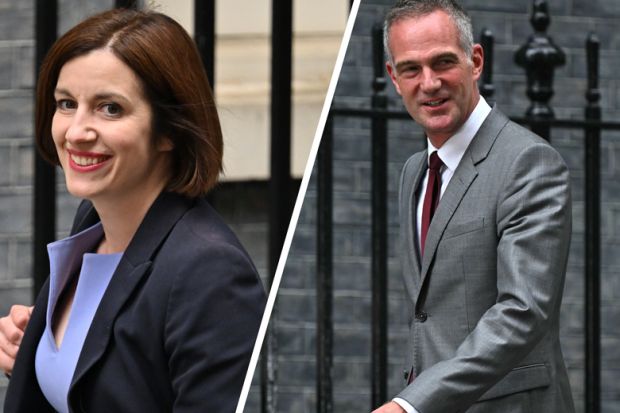Bridget Phillipson will be education secretary and Peter Kyle science secretary in Labour leader Sir Keir Starmer’s first Cabinet, after the party won a landslide victory in the UK general election.
The senior Labour figures were confirmed in the roles they held in opposition as the centre-left party returned to Downing Street for the first time in 14 years.
Ms Phillipson, who studied history and modern languages at Hertford College, Oxford, was made shadow education secretary in November 2021, having previously been the shadow chief secretary to the Treasury.
She has said that England’s higher education funding system is “clearly broken” and “needs replacing” while remaining coy on the options she will pursue in power.
The MP for Houghton and Sunderland has abandoned the party’s pledge to scrap university tuition fees, instead saying recently that putting them up was “unpalatable”, without ruling it out.
Ms Phillipson has also left the door open to providing emergency public funding to a university in trouble although she has said she does not believe that will be necessary.
Mr Kyle took three attempts to get into the University of Sussex and has spoken of his difficulties navigating the education system due to his dyslexia.
He studied a degree in geography, international development and environmental studies and then a doctorate in community development.
The MP for Hove was made shadow science secretary in September 2023, seven months after former prime minister Rishi Sunak created the new Department of Science, Innovation and Technology, elevating the position to a Cabinet-level post.
While this move raised hopes that science would have a stronger voice inside Downing Street, many in the research sector have been left disappointed by the progress under the former postholder, Michelle Donelan, who has lost her seat in this election.
The department was thought to have been too heavily focused on artificial intelligence and regulation of new technologies, neglecting the rest of science and technology policy.
Some in the sector had advocated for science to again be made part of the Department for Business and Trade, to allow for more joined-up policymaking, but it appears Labour has decided to keep the department as is, at least for now.
A key Labour pledge during the campaign was to replace short-term funding cycles for research and development with 10-year budgets.




